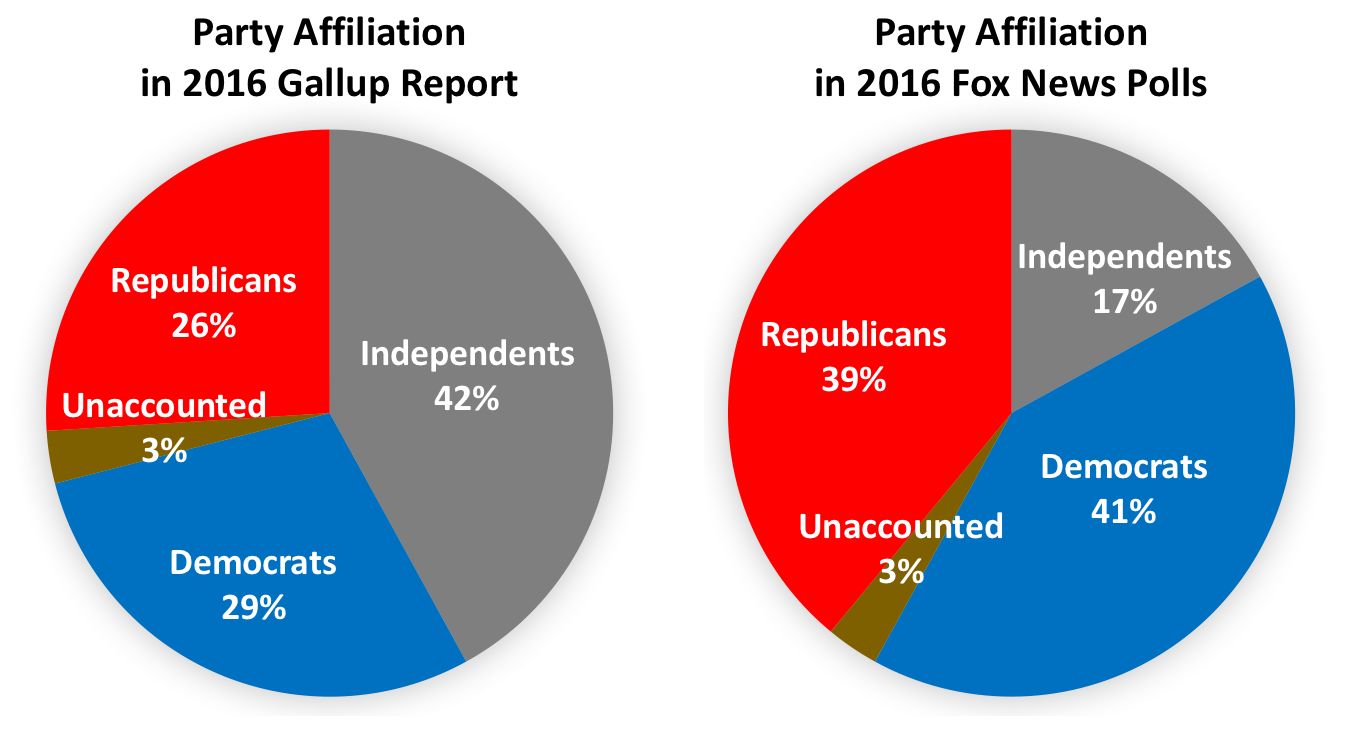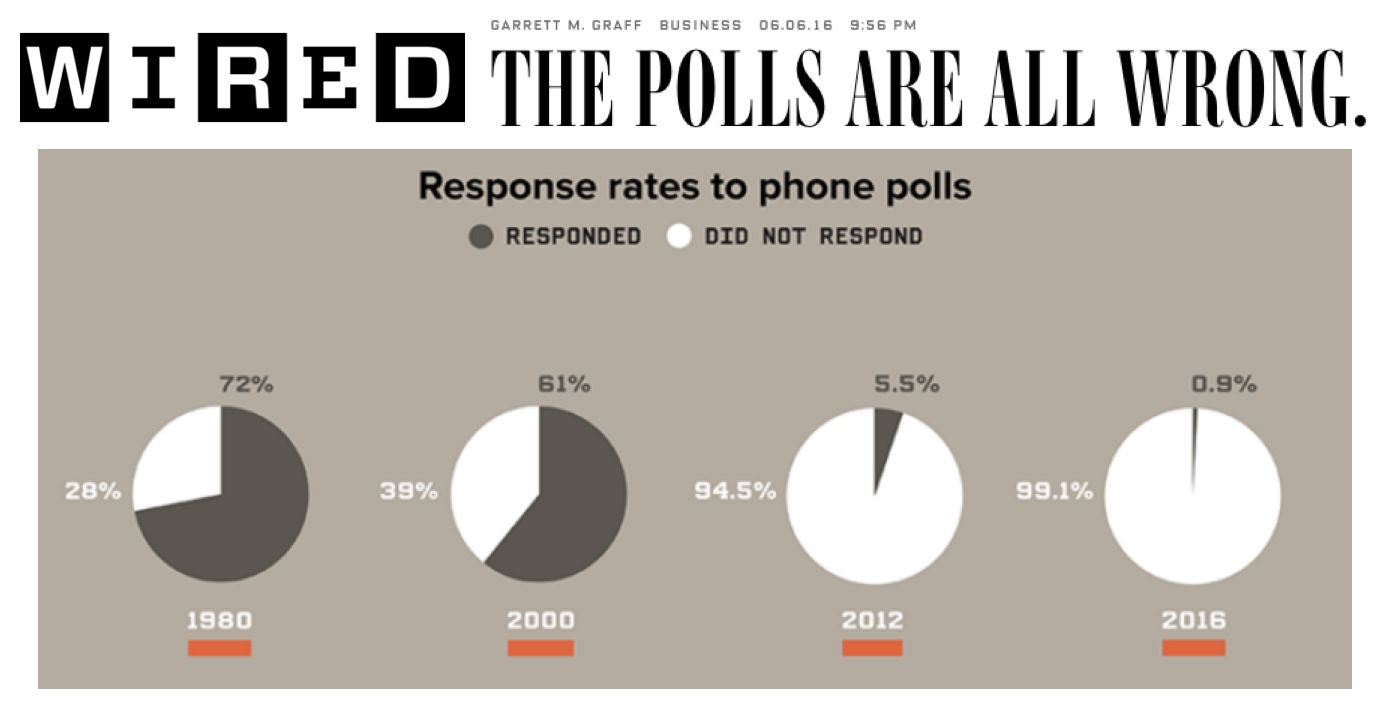Fox News Poll Drastically Under-Samples Independents; 1 of 5 Polls Used by CPD

Are the polls representative? The case of independent voters
In a year of disillusion with the two-party system, many Americans believe that the next president should arise from a third party. To gain exposure, Governor Gary Johnson of the Libertarian Party and Dr. Jill Stein of the Green Party hope to attain a 15% average in five polls that are picked by the Commission on Presidential Debates (CPD).
The CPD is a private organization that is controlled by former and current leaders of the two major parties. In this situation, even if the third-party candidates were to resonate with voters, would the polls detect an uptick in support?
The relevant polls are conducted by ABC-Washington Post, CBS-New York Times, CNN-Opinion Research Corporation, Fox News, and NBC-Wall Street Journal.
Like many Americans, I have generally taken the reported results of these polls at face value. Yet, are the polls representative? Scientific? One would suppose so, since the CPD claims these polls are “selected based on the quality of the methodology employed.” Americans are told that the polls reflect the “national electorate.” That is, the body of people entitled to vote in an election.
However, do they? Publicly available information suggests not.
One of the biggest problem is that the polls systematically underrepresent one of the largest blocs of voters: independents.
For example, thus far, the average 2016 Fox News poll has included around 17% independents. Yet, in early 2016, the widely respected Gallup Organization, which is not conducting this year’s polling, reported that 42% of Americans identify as independents. Given the widespread dissatisfaction with the two parties, the number of independents is unlikely to have decreased. It has probably increased. Thus, the Fox News polls are wildly unrepresentative.

Since the CPD aims to average the latest iterations of the five polls, are independent voters still disadvantaged across the five polls under that standard? Indeed, the average representation of independents in each of the latest iterations of these polls, as of the publication of this post and based on the database on Real Clear Politics, is 34%. That’s a gaping 8% under-representation based on Gallup’s estimate.
And, notably, of the five polls, only the CBS/New York Times poll reports some attempt to correct for this bias through statistical means. As such, on the whole, contrary to the claims of the CPD, the polls do not seem to represent the political diversity of the national electorate.
Beyond the demographics, the core recruitment method fails to represent the American public
A recent article in the prestigious Wired magazine reported that less than 1% of the public is represented in polls. The conclusion is that “the polls are all wrong.” So few individuals answer phone-based polling in 2016 that the method essentially ensures a non-representative result.
How can Americans overcome this systematic disadvantage?
In the future, pollsters should improve their methods. But in this cycle, the damage has been done. The polls are deeply flawed. They have under-sampled independent voters. As a result, third-party candidates have received less free media coverage than Clinton and Trump. This is unjust. The only moral way forward is for the CPD to toss out the polling threshold.
Open the debates.
Editor's note: If you are interested in the author's efforts, you can visit his petition at Change.org or if you would like to find out how to fund additional election research, go here.




